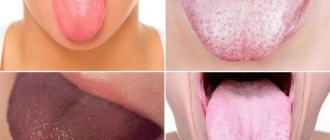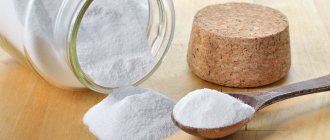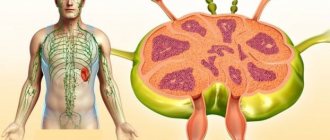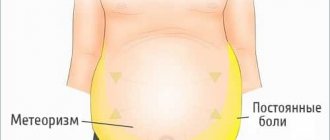Bad taste in the mouth and its causes
Strange taste sensations are a group of multifactorial abnormal conditions, the appearance of which is associated with the development of a number of ailments in the human body. The cause of an unpleasant taste in the mouth observed after waking up or eating food can be dangerous diseases, fraught with complications or even death. Therefore, malfunctions in the functioning of the receptor apparatus cannot be ignored under any circumstances.
Sweet
A sweet taste in the mouth can also be found in people who are absolutely indifferent to sweets. In any case, you need to be on guard: a sweet taste is the first sign of a carbohydrate metabolism disorder and a possible harbinger of diabetes. So, if the sweet taste is constantly present, especially if there is a smell of acetone from the mouth, you should immediately visit an endocrinologist and determine your blood sugar level. In addition, a sweet taste may indicate problems with the liver and pancreas. A cloying taste can also be a sign of pesticide poisoning. Another possible reason is dental problems.
List of factors that cause strange taste sensations
A strange taste is a nonspecific symptom detected in diseases of the gastrointestinal tract and oral cavity, liver failure, cerebrovascular accident, and localization of infectious agents in the upper respiratory tract.
Additional reasons that contribute to the appearance of an unpleasant taste in the mouth include:
- Taking medications, mainly antibiotics. The side effect of most antimicrobial drugs is a disruption of the natural microflora of the body, the development of dysbacteriosis and candidiasis of the mucous membranes. The negative effects of medications are accompanied by the appearance of a strange aftertaste. Discomfort can also be caused by the presence of individual intolerance to the components of the tablets, the death of pathogens, and exacerbation of chronic ailments.
- Dehydration. An unpleasant taste that periodically appears in the mouth may be a consequence of a lack of fluid in the tissues of the organs. Water deficiency occurs when you abuse carbonated drinks, alcohol, tea, and coffee.
- Metal poisoning: mercury, arsenic.
- Incorrect oral care. Poor hygiene is one of the reasons that causes an unpleasant taste in the mouth in the morning and increases discomfort after eating.
- Tobacco smoking.
- Oncology. Malignant tumors localized in various organs can cause the appearance of an unusual taste and bad odor. Among such neoplasms are cancer of the lungs, liver, and soft tissues of the mouth.
- Dietary features: constant overeating, unbalanced menu, eating at night.
Bad taste that appears in the mouth may be accompanied by a number of additional symptoms: fetid odor, the formation of deposits on the tongue, dry mucous membranes, belching, discomfort in the stomach, flatulence.
The reactions of receptor zones to the development of anomalies in the body are differentiated into several types. The most common ones include the appearance of sour, sweet, metallic, salty or bitter tastes. Sometimes patients in medical clinics complain of the appearance of a taste of mold, pus or soda, localized in the throat, tongue and lips.
If the strange taste that appears in the mouth is transient, then you can eliminate the symptom yourself. The development of special physiological conditions accompanied by the appearance of the discomfort in question (menopause, heavy menstruation) requires the supervision of a specialist. If an abnormal taste occurs that is permanent, you should immediately consult a doctor.
Drugs for the treatment of belching
Belching, and if the phenomenon occurs frequently, often creates an uncomfortable feeling. To combat it, doctors advise using both folk remedies and medications. What is offered by traditional healers from food and other remedies prepared at home:
- Goat milk. By drinking a glass of fresh product three times a day (after meals), you can completely solve the problem of frequent belching.
- Linen. The seeds of the plant (1 tbsp) are poured with a glass of boiling water, after which the substance is allowed to brew for 30 minutes. Drink ¼ cup of infusion per day, the total course of treatment is 2 weeks (three is possible).
Pharmaceuticals for the treatment of belching offer a number of complex drugs that not only solve the problem, but also help prevent its occurrence in the future.
Experts advise that if you experience frequent belching, you seriously study the problem for comprehensive treatment of the disease, since this type of manifestation is one of the symptoms of the development of diseases of the gastrointestinal tract and its organs.
Bitter taste in mouth
Only the attending physician can give an exact answer to the question of why a bitter taste appears in the mouth. Such a distortion of taste perception often signals disturbances in the functioning of the liver, gall bladder, stomach, and intestines. Diseases include chronic cholecystitis and biliary dyskinesia. Additional causes of pathology include smoking, long-term use of medications, constant stress, consumption of fatty foods and fried meat.
The manifestation of a bitter taste is associated with the penetration of bile (food masses containing it) from the gastrointestinal tract into the esophagus. The symptom appears mainly in the morning and after meals.
Taste of salt in mouth
Experts identify 2 main reasons for the formation of the anomaly in question - non-compliance with the basic rules of oral hygiene and prolonged dehydration, which provokes the accumulation of salts. The described change in taste perception may indicate the latent course of some ailments:
- sinusitis;
- failure of the kidneys;
- sinusitis;
- pathologies of the salivary glands.
The secondary cause of salty taste in the mouth is injury to the nose, gums, tongue, teeth, soft palate, accompanied by bleeding. Blood plasma contains sodium chloride, so its contact with the microvilli of taste analyzers causes the appearance of a salty taste.
In addition to the above, a strange taste sensation can occur when using a number of medications (injections, tablets) used in cancer treatment regimens, as well as with the onset of menopause.
Sour taste in mouth
The most common factors that activate the formation of an unpleasant odor and the appearance of a sour taste in the mouth include diseases of the biliary system and pathological changes in the gastrointestinal tract (gastritis and ulcers).
Inflammation and the formation of defects in the inner linings of the gastric walls leads to the production of large amounts of gastric juice. Normally, the multicomponent liquid does not penetrate beyond the muscular organ, but with the development of various disorders, the contents of the stomach (food and acid) are thrown into the esophagus, bordering the throat.
In addition to the appearance of an unpleasant taste of sour milk in the mouth, gastritis causes heartburn, belching, and epigastric pain. When visiting a doctor, men and women complain of breath stinking of hydrogen sulfide, general weakness, and deterioration of their condition. The clinical symptoms of progressive peptic ulcer disease are similar to the signs described above.
In addition to gastritis and ulcers, the appearance of a sour taste can be caused by the oxidation of orthodontic structures (prostheses, crowns) made from low-quality materials. Violation of the structure of products, which results in a sour taste in the mouth, occurs under the influence of saliva components, due to improper use of devices.
Additional factors that cause the formation of a sour taste are dehydration, advanced caries, gum inflammation, intramuscular and intravenous administration of nicotinic acid. You can find out why your mouth becomes sour in the morning and after eating food after visiting a therapist, dentist, or gastroenterologist.
Sour
This symptom often accompanies stomach ulcers and gastritis with increased acidity of gastric juice. If a sour taste is accompanied by heartburn, then the cause is usually reflux esophagitis - a malfunction of the valve between the esophagus and the stomach. To reduce discomfort to a minimum, you need to avoid spicy, pickled, smoked, fried foods; eat slowly and in small portions; do not lie down after eating for at least 1.5–2 hours; Avoid tight clothing that tightens the abdominal area while eating.
If there is a sour taste in the mouth, it also makes sense to examine the pancreas. Finally, a sour taste can occur due to diseases of the gums and teeth, such as periodontitis.
Sweet taste in mouth
A sweet taste felt in the tongue in the morning is a symptom that signals the onset of diabetes mellitus, a neurological disorder, a disease of the digestive system (ulcers, gastritis, pancreatitis, GERD), the thyroid gland or respiratory system (pneumonia, bronchitis).
In addition, the occurrence of an unpleasant sensation may be due to the growth of colonies of microorganisms in the oral cavity. Dental patients often report a sweet taste, pain and bleeding.
A sweet taste in the morning, accompanied by bad breath, may be due to chemical poisoning, metabolic disorders, or quitting smoking. Among the patients who visit specialists with complaints of a milky-sweet taste in the oral cavity are people who eat too high-calorie foods and pregnant women.
Metallic taste in the mouth
The taste of metal can arise under the influence of factors, conditionally differentiated into 5 groups. The first includes pathologies localized in various organs. Among them:
- dental diseases: periodontal disease, gingivitis;
- pathologies of the digestive system: chronic gastritis, pancreatitis, ulcers;
- diabetes;
- liver dysfunction;
- anemia;
- cancer.
The second list of prerequisites includes poisoning with various toxic substances. Among the factors belonging to the third category are the long-term use of statins, antihistamines, hormonal contraceptives produced in antibiotic tablets: Amoxicillin, Metronidazole and its analogue Trichopolum. Infusions of antibacterial drugs have fewer side effects.
Changes in the sensitivity of receptors periodically manifest themselves with the oxidation of orthodontic appliances, constant wearing of iron jewelry - piercing of the lips, tongue, wide bracelets.
The fifth group of reasons that cause a metallic taste includes special conditions - pregnancy, menopause, menstruation. For a number of women, the sensation of metal in the mouth, accompanying changes in hormonal levels, is a physiological norm.
Taste of mold, soda, pus, medicine in the mouth
The answer to the question why there is a taste of pus in the oral cavity is very simple: this symptomatology is observed mainly in dental pathologies (periodontitis, alveolitis) and inflammatory processes in the throat area (laryngitis, pharyngitis, tonsillitis).
The cause of the taste of medicine in the mouth is dental filling. The symptom is temporary and does not require additional examination by a doctor.
A study of the liver and bile ducts will help to find out why the sensation of soda occurs in the mouth - disruption of the functioning of these areas leads to the development of a specific taste. A symptom accompanied by a heavy, putrid odor, fever and bouts of vomiting indicates an excess of iodine in organ tissues.
When a person notices the appearance of an unpleasant moldy taste in the mouth in the morning and throughout the day, it is recommended to carefully examine the living room - the development of the symptom is facilitated by the presence of increased concentrations of the fungus Aspergillus niger. Black Aspergillus is one of the most dangerous allergens; infection with its spores can be fatal.
Briefly about diagnosis and treatment
Detection of most of the described signs requires contacting a medical facility. To exclude the possible development of dangerous illnesses, the patient will need to visit a general practitioner, an infectious disease specialist, a gastroenterologist and a number of highly specialized doctors.
Diagnosis and treatment are made after interviewing and examining the patient and obtaining the results of additional studies. Among the latest:
- general and biochemical blood and urine tests;
- Ultrasound of the abdominal cavity;
- MRI;
- radiography;
- PCR diagnostics.
Having found out why the discomfort appeared, the doctor develops a treatment regimen for the disease. Relief of ailments that bother the patient is carried out by using anti-inflammatory drugs, antibiotics, and hormonal drugs. Treatment is carried out taking into account the patient’s age, his condition, and the presence of a history of chronic ailments. Recovery time varies depending on the form and type of pathology.
A favorable outcome of the identified disease is possible only if you consult a doctor early, do not self-medicate, and follow all the recommendations of the clinic employee.
https://youtu.be/GIOls2IRWDA
Treatment
Of course, you can only manage the symptoms, but it is advisable to still consult a doctor for a diagnosis and begin treatment for the disease that causes the feeling of salt in the mouth , as well as the fishy taste.
However, if a salty taste appears due to some external factors, then several main directions of treatment can be recommended:
- in case of dehydration, you need to drink enough fluid so that the body’s water-salt balance returns to normal;
- if the origins of the problem lie in the selection of the medications used, you should consult with your doctor and select alternative medications, if possible;
- poor oral hygiene makes it necessary for high-quality sanitation and cleaning by a dentist, after which an individual approach to maintaining cleanliness in the mouth should be developed, selecting the most suitable toothpaste and brush;
Taste of soda in the mouth
Sometimes different tastes appear in the mouth or on the tongue that do not correspond to what we eat. This usually indicates disorders in our body and often prevents us from enjoying food. The sensations from what touches the tongue are transmitted to the brain, where they are recognized as sweet, sour, bitter or salty. Over time, these sensations are leveled out, that is, they decrease. Perhaps the taste of soda in the mouth may indicate some disorder in the body. Therefore, it is necessary to take a closer look at the reasons why such a symptom appears.
Quite often, the taste of soda in the mouth signals that there are some problems in the body.
In general, the appearance of any taste in the mouth is a rather subjective sensation. And if for someone the appearance of some unusual taste may be associated with soda, then another person may not feel it. Therefore, the occurrence of any unusual sensation in the mouth, especially when it does not go away for a long time, is a signal for us of some kind of disorder in the body and, as a result, requires a visit to the doctor. The appearance of the taste of soda can also be characterized by the following sensation - dry mouth. And if you have it, it means something happened to your body. Examples of what may happen are given below.
How to increase your fish catch?
Over 7 years of active fishing, I have found dozens of ways to improve the bite. Here are the most effective ones:
- Bite activator . This pheromone additive attracts fish most strongly in cold and warm water. Discussion of the bite activator “Hungry Fish”.
- Increased gear sensitivity. Read the appropriate manuals for your specific type of gear.
- Pheromone -based lures .
If a feeling of dryness in the mouth is added to the taste, then the body in this way signals a lack of fluid. Normalization of water-salt balance occurs under the supervision of the attending physician.
There are several main reasons why this or that unpleasant taste occurs in the mouth:
- Dehydration of the body . Probably the most common reason. The level of need for fluid varies from person to person, but if there is not enough fluid, the saliva becomes more viscous and salty. In this case, you should avoid drinking alcohol and carbonated drinks. Diuretics can also cause dehydration.
- Inflammation of the salivary glands. Various bacterial infections and other diseases can cause inflammatory processes in the glands, which directly affects the chemical composition of saliva.
- Treatment of cancer . Procedures such as chemical and radiation therapy can change the state of the taste buds, as a result of which this may cause a fishy taste in the mouth or any other taste.
- Profuse lacrimation . Tears entering the nasopharynx can cause a salty taste in the mouth for some time.
- Mucus in the nasopharynx . Due to an infection or cold, a person may develop sinusitis, which causes a lot of secretions to accumulate in the paranasal sinuses. When mucus hits the back of the throat, it can leave a salty taste in the mouth. In addition, a large accumulation of mucus can result in allergic reactions.
- Poor hygiene can cause soft and hard deposits to develop and also increase the risk of developing oral infections. The proliferation of pathogenic bacteria affects the gums, teeth, mucous membrane and salivary glands, which also affects the sense of taste.
- Taking medications . Many drugs for the treatment of the gastrointestinal tract and thyroid gland can cause the appearance of foreign tastes in the mouth because they affect the chemical composition of saliva.
Diseases that cause unusual sensations in the mouth
If you feel the taste of soda in your mouth, which is accompanied by bitterness, this indicates problems with the liver and biliary tract. Bile should go into the intestines, but if any pathologies occur, it begins to accumulate in the bile ducts, after which it is thrown through the stomach and esophagus into the mouth. In this case, you should consult a doctor.
The taste of soda can appear due to overeating, when the intestines “get tired” of constant work and begin to take breaks.
Long-term use of certain medications can also cause this sensation. If there is a sweet taste mixed in, then diabetes may be the cause.
Excessive consumption of alcohol, and many have probably experienced this themselves, causes extremely unpleasant sensations in the oral cavity the next day due to a lack of fluid in the body. Other common causes of soda taste include iodine overdose and thyroid problems.
The taste of soda with an unpleasant odor indicates hypoacid gastritis. A small amount of gastric juice prevents food from being digested, which after a while causes discomfort. If in addition you experience a metallic taste, it is possible that your gums are bleeding.
It is necessary to consult a doctor - a dentist-therapist and an endocrinologist
In any case, if such a symptom appears and any other accompanying signs, you should consult a doctor. It is best to undergo a full examination in order to prevent the occurrence of a serious disease in the early stages.
The taste of soda should sometimes be considered a symptom of pathology that requires us to take certain actions!
Provoking diseases
First of all, you need to pay attention to the condition of the gastrointestinal tract. Common diseases that lead to soda sore throat in adults and children:
- Diseases of the liver, gall bladder, biliary tract. The resulting bile must enter the duodenum. Changes in the functioning of organs contribute to stagnation of bile. It is automatically thrown into the stomach, and then the esophagus, and the oral cavity.
- Gastritis with low acidity. Due to a lack of gastric juice, food is poorly digested and does not leave the body on time. It begins to rot and ferment, causing unpleasant sensations.
- If the sore throat of sodium bicarbonate is accompanied by bitterness, then this indicates a “lazy intestine” and a lack of enzymes. Banal overeating significantly reduces intestinal activity. Food stagnates and the teeth set on edge. Following a diet will help prevent discomfort.
- A sweetish soda taste may indicate a serious pathology - diabetes. You should consult a doctor. The initial form of the disease is easily treatable with drugs.
The feeling of soda with a characteristic metallic taste indicates a problem with the gums, namely bleeding. Periodontitis, periodontal disease, and gingivitis are also provoking factors.
Other Causes of Bad Taste
Why else does this symptom occur? It can be triggered by the following factors:
- Aging.
- Dehydration (dehydration).
- Smoking.
- Injuries to the mouth or tongue.
- Upper respiratory tract infections.
- Sinusitis.
- Pharyngitis or sore throat.
- Pregnancy, and as a result hormonal changes.
Pregnant women tend to become more sensitive to different odors. During pregnancy, women may experience new taste sensations, including the taste of soda. This problem occurs if a pregnant woman is careless about her diet. In addition, women's consumption of special prenatal vitamins may disrupt normal perceptions.
Many medications and therapeutic procedures change taste sensations because they affect nerve endings and the brain’s perception of external stimuli:
- Antibiotics.
- Neurological drugs.
- Medicines prescribed for Alzheimer's disease.
- Medicines for the treatment of the cardiovascular system.
- Chemotherapy drugs.
- Antidepressants.
- Medicines for the treatment of tuberculosis.
Rarer disorders that cause changes in taste in the mouth:
- Brain damage and neurological disorders.
- Using dental appliances such as braces.
- Allergic reactions.
- Consequences of radiation therapy.
- Autoimmune disorders.
- Performed ENT surgeries.
- Deficiency of certain microelements and vitamins (zinc, vitamin B12).
A soda taste in the mouth can be a temporary symptom or a chronic condition associated with health problems.
If this feeling is temporary, some home remedies can help relieve this unpleasant feeling:
- Maintaining oral hygiene. It is important to brush your teeth while also cleaning your tongue to remove any bad taste.
- Drink plenty of fluids. Drinking water and fruit juices such as orange juice and lemonade can help get rid of the taste in your mouth.
- Eat more fruits and vegetables. Citrus fruits (oranges, lemon), grapes, and various vegetables promote the formation of saliva, which helps wash away the unpleasant taste in the mouth.
- Rinse your mouth with salt water. This often helps get rid of an unpleasant taste in the mouth.
Other reasons
There are a number of negative factors that lead to the appearance of a baking soda taste:
- aging;
- dehydration of the body;
- smoking;
- infectious diseases of the upper respiratory tract;
- injuries of the tongue, oral cavity;
- sinusitis, pharyngitis;
- throat diseases.
Pregnant women have an extremely sensitive sense of smell and often develop new taste sensations. The taste of soda accompanies many women throughout pregnancy.
As a rule, this occurs due to hormonal changes in the body and poor nutrition. The abdominal organs experience enormous stress. Even minor “relaxations” in food can provoke unpleasant sensations.
Certain medications and medical procedures can change taste sensations. They influence the areas of the brain responsible for the perception of taste. These include medications for tuberculosis, cardiovascular pathologies, neurological and mental disorders.
The taste of soda in young children is observed when taking antibiotics and antiviral drugs.
Rarely, the appearance of an unpleasant sensation can be caused by:
- allergy;
- autoimmune diseases;
- brain damage;
- neurological diseases;
- performing ENT surgery;
- consequences of chemotherapy and taking hormonal drugs;
- wearing crowns, braces;
- deficiency of vitamins and microelements.
How to Identify Health Problems by the Taste in Your Mouth
A special taste in the mouth that appears in a person for no apparent reason can serve as a good clue to the doctor.
Many doctors, when examining a patient, ask him if there is an unusual taste in the mouth. There are good reasons for this, because a number of diseases are accompanied by a change in taste in the mouth, which is an excellent clue for making a diagnosis. So, let's figure out what certain diseases taste like.
Every disease has its own taste. How to determine your diagnosis by the taste in your mouth
Sweet
After dessert, the sweetness remains in your mouth for some time. But there are situations when that sweetness is felt, regardless of what the person has eaten. So, the possible causes of an obsessive sweet taste:
Poisoning by poisons. Toxins in the body affect several organ systems at the same time, so poisoning is often accompanied by a change in taste. Therefore, if you have a memory of contact with pesticides, phosgene or other poisons, it is better to immediately contact the toxicology department of the hospital for a quick diagnosis of the disease;
Impaired production of the hormone insulin. The cause of obsessive sweetness in the mouth may be an excessive amount of sugar in the blood, caused by disorders of the pancreas. The mechanism of the phenomenon is quite simple: sugar from the lymphatic system enters saliva, sweetening it. Therefore, it is better to immediately visit an endocrinologist to determine your blood sugar level, so as not to provoke the development of diabetes. Pancreatic dysfunction can also cause a sweet and sour taste in the mouth, which is often accompanied by heartburn. This is the first suspicion of pancreatitis;
Problems with the nervous system . If nerve fibers are damaged, the brain cannot properly process the information received, which leads to a sweetish sensation in the mouth. The cause may be common bacterial and viral infections. In this case, you need to take a general blood test and take it to a therapist;
Prolonged stress. The stress hormone tends to increase blood glucose levels. Therefore, during periods of depression, people can often feel a sweetness on the tongue that appears immediately after a stressful situation occurs;
Diseases caused by exposure to Pseudomonas aeruginosa. Such a bacterium, affecting the lungs or oral cavity, also provokes a sweetish taste. It's all about the metabolic products of the microorganism;
To give up smoking. At first, when a person quits smoking, a sweetness is felt in the mouth after eating.
Sour
This item is accompanied not only by a sour taste in the mouth. Often a person is bothered by heartburn and belching. Let's consider the possible causes of these phenomena:
Gastrointestinal diseases. G astritis, ulcers, reflux and other diseases of the gastrointestinal tract often have symptoms of high acidity. These diseases can be indicated by accompanying symptoms such as pain in the upper abdomen, problems with stool, general weakening of the body and periodic nausea. In this case, you need to contact a gastroenterologist as soon as possible;
Dental diseases. As you might guess, oral problems almost always change the taste in your mouth. Caries, periodontitis and other dental problems cause increased acidity in the mouth. If accompanying symptoms are toothache and swelling, you should contact a dental clinic;
Pregnancy . An increase in the size of the uterus causes pressure in the abdominal cavity;
Night glutton. If you eat a lot of food at night, you will have an unpleasant taste in the morning.
Bitter
Bitterness in the mouth is the most unpleasant symptom. There may be several reasons for this, namely:
Diseases of the liver and biliary system. Bile has a bitter taste, and in case of diseases of these organs, it enters the oral cavity, causing a burning bitterness. This may be cholecystitis, gallstones and other diseases. Associated symptoms: nausea, acute pain in the upper right corner of the abdomen. It is necessary to contact a gastroenterologist;
Abuse of fatty foods . It also causes excessive bile secretion;
Love for alcohol. A similar principle for the appearance of bitterness;
Frequent use of anti-allergy medications. This is due to the impact on the immune system, which causes general disturbances in the functioning of the gastrointestinal tract and biliary system.
Salty
This problem is usually caused by minor factors. But still, the problem can also be infectious diseases.
Possible reasons are:
Bacterial and fungal diseases of the nasopharynx. If such diseases are accompanied by the secretion of mucus, a salty taste may be felt, which is caused directly by the substance entering the oral cavity;
Diseases of the salivary glands. Many pathogenic microorganisms disrupt the functioning of the salivary glands. It is necessary to contact a dentist;
Abuse of alcohol, tobacco products and sweet water . Damage to the oral mucosa is to blame;
Lack of oral hygiene. In this case, you need to brush your teeth more often and drink up to 2 liters of water every day.
After reading our article, you may have more accurate suspicions of a certain disease. But still, we strongly recommend that if a strange taste appears in your mouth, immediately consult a doctor for correct diagnosis of the cause and timely treatment! Published by econet.ru.
PS And remember, just by changing your consciousness, we are changing the world together! © econet
Did you like the article? Write your opinion in the comments. Subscribe to our FB:
Set my teeth on edge
Frequent heartburn and sour belching often accompany pregnancy: the growing uterus puts pressure on the diaphragm, intra-abdominal pressure increases. Those who eat a lot at night also often experience a sour taste in their mouth in the morning. But if these reasons have nothing to do with it, then it is better to deal with this symptom specifically. A persistent sour taste can occur:
for diseases of the digestive tract - often this is a sign of hyperacid gastritis, which is accompanied by increased stomach acidity, or gastroesophageal reflux, as well as gastric ulcer. If, in addition to a specific taste, a person is bothered by pain in the upper abdomen, nausea after eating, heartburn, sour belching, frequent diarrhea or constipation, weakness, it is worth visiting a gastroenterologist. And in order not to guess, you need to do a gastroscopy;
in case of problems with teeth - with caries, gingivitis, periodontitis, in addition to a sour taste in the mouth, there may be toothache, swelling and bleeding of the gums. Hurry to the dentist!
Soda taste in mouth
An unusual taste in the mouth may indicate diseases of the digestive system, metabolic failures or other provoking factors.
Frequent disturbances in taste cannot be ignored, since the pathology can develop, causing complications.
Often a taste of soda appears in the mouth, but not everyone knows what this means and how to deal with the problem.
Main reasons
The reasons why the taste of soda appears in the mouth are varied. Often the problem is hidden in the impaired outflow of bile, disruption of the biliary tract.
A similar problem often occurs when the diet is not followed, when a person simply overeats, and the intestines cannot cope with the stress, his motility decreases, and as a side effect the taste of soda appears.
Other main reasons include:
- In women, a similar condition can appear as a result of pregnancy. In this situation, hormonal levels change, the functioning of the digestive system and gastrointestinal tract organs changes. In addition, medications and dietary supplements that are used incorrectly, in violation of the pattern of use, can be provocateurs.
- The taste of soda in the mouth often develops with diabetes, and to determine the disease you will need to undergo a thorough diagnosis of the endocrine system. Doctors may prescribe medications and other remedies to eliminate the soda taste in your mouth.
- People who do not maintain a balanced diet may experience similar discomfort. The causes of the condition are excess iodine in the body. In such a condition, it is recommended to consult a doctor, especially if a fever or vomiting occurs. In such a case, doctors perform gastric lavage and take other measures, depending on what the problem is.
- Dehydration of the body, which occurs due to medications, frequent vomiting, diarrhea, or after alcohol, negatively affects the general condition. The viscosity of saliva changes significantly, which leads to a change in taste in the mouth. If you give up alcohol and restore your water balance, your condition will improve.
Common causes of belching and their main types
For the human body, belching is considered a normal phenomenon and is in demand due to the physiological needs of the body: excess gases and oxygen, without creating problems for the gastrointestinal tract, can be freely released naturally.
This process occurs due to the contraction of the diaphragm, which, when activated, bends under the accumulated gases and, opening slightly, prevents excess gases from accumulating, allowing them to pass upward into the oral cavity. Reasons for concern regarding health are the frequency of belching, the presence of unpleasant odors and tastes. The reasons that can trigger belching are different:
- Wrong food intake. This happens mainly during a common feast, when people eat a lot of food, communicate with each other, laugh, and wash down their food with carbonated and alcoholic drinks. In children (especially infants), belching is a mandatory reflex, so mothers must monitor this moment without fail, since during burping the baby often releases food particles.
- The formation of gases that cause fermentation processes in the stomach. This feature is additionally accompanied by various unpleasant odors.
- The presence of diseases of the digestive tract and system.
- Disease of other internal organs and systems (central nervous system, cardiovascular).
- Improper organization of rest after meals, heavy physical activity.
- A peculiar reaction in the form of quickly swallowing air during fright and other similar moments.
- Consequences of certain foods and drinks (carbonated water, cabbage, legumes, vegetables).
- In pregnant women, the cause of belching is physiological and hormonal changes.
- Bad habits: smoking, chewing gum abuse.
Diagnosis
If a taste of soda appears in your mouth, it is important not to delay your visit to the doctors, but to quickly determine what kind of symptom it is and what disorders it indicates.
The first step is to contact a therapist, who will study the symptoms, conduct an initial examination and establish a presumptive diagnosis.
After this, the therapist refers the patient to a highly specialized doctor who carries out further treatment.
If the disorders are caused by gastrointestinal diseases, then the person is sent to a gastroenterologist, who performs an ultrasound, examines the stomach and analyzes gastric juice. After this, the exact cause and method of treatment are determined.
In case of food poisoning, medication or overdose, you need to consult a toxicologist. Endocrine system disorders are treated by an endocrinologist.
It is very difficult to independently determine the causes of a symptom; selecting therapy on your own is prohibited in order to prevent exacerbations and negative consequences.
Reviews
Many reviews from people indicate that the problem began as a result of the development of certain malfunctions in the body. Most of them were treated with folk remedies and also adjusted their diet. Here is just a small part of the reviews:
Valentina Sergeevna
For about a month I suffered from an unpleasant soda taste, which appeared and disappeared. I contacted a therapist. He did not identify any serious problems and advised me to follow a diet. I eliminated all harmful foods from my diet, and the results were not long in coming. After just 2 weeks, the nasty sore throat disappeared and has not reappeared to this day. I’m very glad that in my case I managed with a regular diet.
Alexander Valerievich
I am a student, soda deposits occur during stressful situations, namely during the session. A very unpleasant sensation that distracts you from your studies. On the advice of friends, I began to drink a lot of water and rinse my mouth with a weak solution of water and lemon juice. The effect is short-term, but effective. But if you have serious stomach problems, you need to see a doctor. Plain water will not help with gastritis.
Viktor Sergeevich
The taste of sodium bicarbonate appeared after a visit to the dentist. Regular rinsing with chamomile decoction eliminated it. In winter I fell ill with a sore throat, and the discomfort returned. I contacted an ENT doctor. It turned out that there were colonies of harmful microorganisms in the mouth. I rinsed my mouth with the prescribed product for a month. The taste gradually disappeared. Now the unpleasant symptom is rare, but sometimes it bothers me. I'm thinking about checking my stomach.
Maria Petrovna
I encountered a taste of soda in my mouth, all of the above methods did not help. I didn't go to the doctor. I started rinsing with chamomile infusion, and it really went away quickly. As soon as I stopped rinsing, everything came back. One day at dinner I wanted garlic; when I woke up in the morning, I noticed that the bad taste had become less. For two days I ate garlic with meals. The soda taste was gone.
Svetlana Konstantinovna
I have been waging a war with this symptom for a long time. It all started with long-term use of hormonal drugs that affected the liver. At first the taste of soda was faint, but became stronger over time. I contacted a therapist who sent me for an ultrasound. Changes in the liver were diagnosed. Liver pills and an increased drinking regimen were prescribed. Instead of tea I started drinking water. The treatment was chosen correctly, and by the end of the course I already felt improvements. I also continue to drink a lot of water and periodically take a vitamin complex.
There is a high probability that this is a sign of illness. Some of them can significantly affect your health, for example, diabetes, atherosclerosis. To get rid of a symptom, you first need to understand the cause of its development. Only a specialist can help determine the cause.
Source: soda-soda.ru
There is rarely a person who is not familiar with the unpleasant taste sensations that periodically occur in the oral cavity. The taste of soda is one of the most common of them. It can appear as an independent symptom or in combination with others. It is immediately worth noting that such conditions are not manifestations of the norm, but are evidence of problems in the human body. Let's consider when the taste of soda in the mouth indicates pathological conditions. Most often, its causes lie in impaired metabolism and dysfunction of the gastrointestinal tract.
The combination of the taste of soda in the mouth with a feeling of bitterness may indicate inadequate functioning of the biliary system, which includes the liver and biliary organs.
The human body is designed in such a way that bile is formed in the liver and collected through the bile duct system into the gallbladder, from which it is released into the duodenum, provoked by food intake. In various pathological conditions, the release of bile from the gallbladder can be difficult for a number of reasons. And when this happens, the secretion enters the cavity of the stomach, and from there it is thrown into the esophagus and oral cavity. You need to understand that such symptoms will not go away on their own. Compliance with a special diet, nutrition regimen and the use of medications prescribed by an experienced doctor will help normalize the functioning of the biliary organs and remove the taste of soda and bitterness in the mouth.
Another reason why a soda taste appears in the mouth may be insufficient intestinal activity. In which too much food can provoke a decrease in peristalsis, which leads to stagnation of food and the mouth suffers from a feeling of soreness.
Among other fairly common causes of an alkaline taste in the mouth is long-term use of medications and hormonal substances. These sensations come and disappear after completion of treatment or some break between courses.
Sometimes patients complain not only about the soda taste in the mouth, but also about its combination with a feeling of sweetness. With such symptoms, you should be examined for the presence of diabetes mellitus, which has become very widespread in recent years. By contacting an endocrinologist, you can control the acquired type of diabetes mellitus not only by using medications, but also by following a diet and adjusting your diet.
The taste of soda in the mouth can also be bothersome to those people who are fond of strong alcoholic drinks. This happens because the presence of strong alcohol in the body leads to dehydration of the latter, as a result of which saliva becomes more concentrated and thick. If you give up alcohol completely or at least reduce its consumption, the unpleasant symptoms will disappear on their own.
The taste of soda in the mouth can be a symptom of such a dangerous condition as iodine poisoning. In this case, the patient will experience severe nausea, even vomiting, and a fever. The main therapeutic measure in this condition is to relieve the patient of the negative effects by lavaging the gastric cavity.
Impaired function of the thyroid gland, as well as the liver, can be manifested by a soda taste in the mouth. Moreover, no other signs of pathology may be present until some point. And their appearance, as a rule, already indicates the neglect of the process. The addition of a “metallic taste” in the mouth in some cases indicates a worsening of the dynamics of liver disease, but is not an absolute indicator of this.
If the feeling of soda in the mouth is combined with a rotten tint, then an exacerbation of gastritis can be suspected. Insufficient production of gastric juice by secretory cells leads to poor digestion and stagnation of food. Fermentation processes begin in the stomach, which is manifested by a nauseating taste in the mouth. With the help of a diet you will not be able to cope with this condition on your own. It requires consultation with a gastroenterologist and the use of special medications.
Very often, such sensations torment women during pregnancy. This problem can arise at any stage of pregnancy and is associated primarily not with any deviations from the norm, but with careless nutrition. Provoked by “caring” relatives and a constant feeling of hunger, a pregnant woman consumes everything. Which makes all the organs of the digestive system work harder, so they are subject to double load. You can get rid of unpleasant manifestations by optimizing the diet and diet of the expectant mother.
During colds of the upper respiratory tract, especially if they are accompanied by a severe cough, the patient may feel a soda taste in the mouth. This happens because particles of sputum containing elements of soda, which is used as a thinning agent for better removal of thickened exudate, enter the oral cavity. This condition does not pose any danger, but only indicates the resolution of the disease.
As you can see, in most cases, the presence of a soda taste in the mouth indicates various problems in the body and requires a full examination by a specialist. In any case, this symptom cannot be ignored, especially if it has been bothering you for a long time and is combined with other manifestations.
Source: sodagid.ru
Prevention
After diagnosis, you can make sure that there are no serious disorders in the body, and the attack is temporary. In this case, the patient does not need to use medications and other means, but it is necessary to adhere to prevention in order to exclude a relapse.
The basic rules are:
- Maintain cleanliness and oral hygiene. When cleaning your teeth, you must not forget about your tongue and remove plaque from it, which contains a lot of bacteria.
- Drink plenty of water throughout the day, which can dilute stomach acid, neutralizing acid. Water eliminates dehydration and restores balance. In addition, you can take juices, decoctions based on herbs and other herbal remedies.
- Watch your diet; your diet should include plant foods every day. To improve the secretion of saliva, which eliminates the taste of soda, you can use citruses and sour fruits.
- The diet must be correct. It is forbidden to overeat; you need to eat small portions, regularly. Don't starve and have a varied menu every day.
If the described preventive measures and other home remedies do not eliminate the problem, then contacting a doctor is mandatory, especially with additional symptoms in the form of pain, dyspeptic and other disorders.
Treatment is determined individually for each person, based on the type of disease. You will need to eliminate the root cause, and the taste of soda will go away on its own.
How to increase your fish catch?
Over 7 years of active fishing, I have found dozens of ways to improve the bite. Here are the most effective ones:
- Bite activator . This pheromone additive attracts fish most strongly in cold and warm water. Discussion of the bite activator “Hungry Fish”.
- Increased gear sensitivity. Read the appropriate manuals for your specific type of gear.
- Pheromone -based lures .
https://youtu.be/9PwIGnwUvL8











